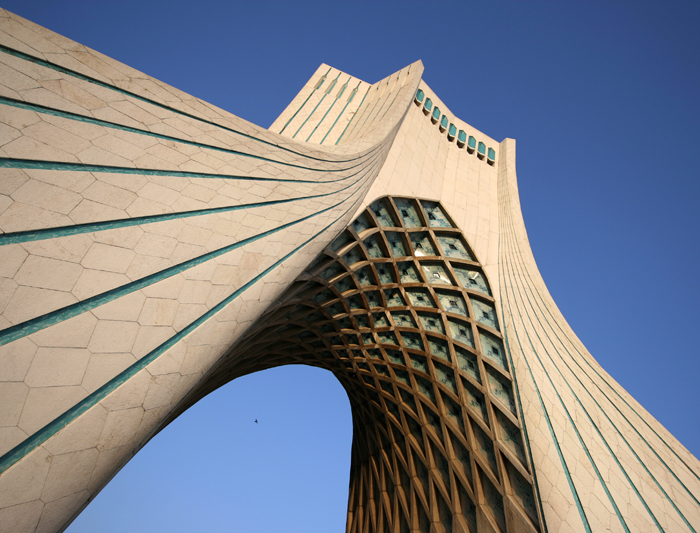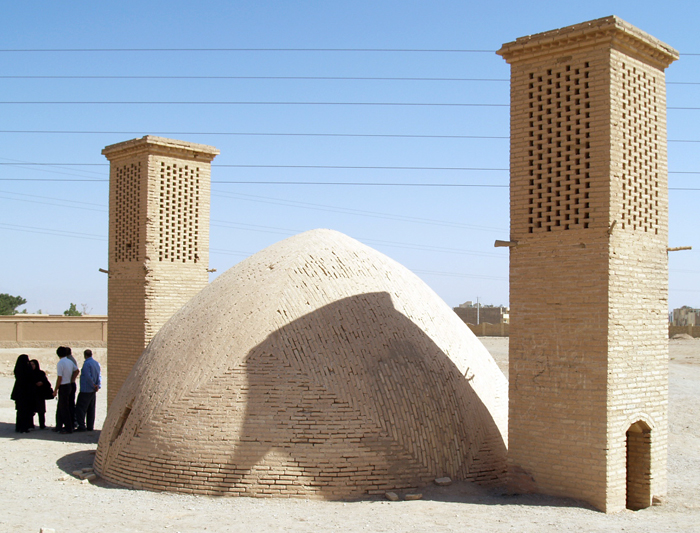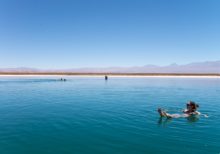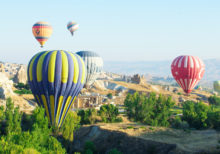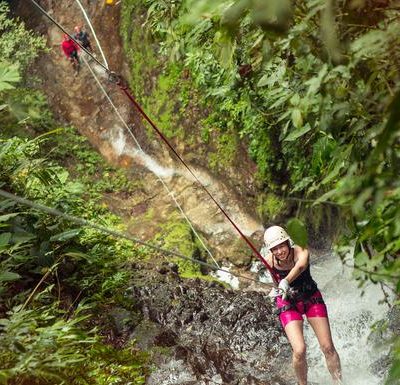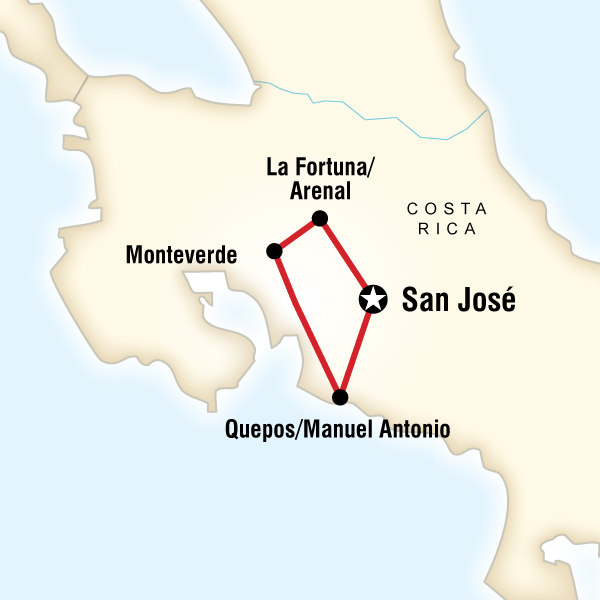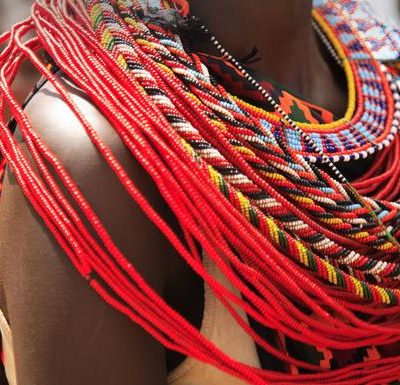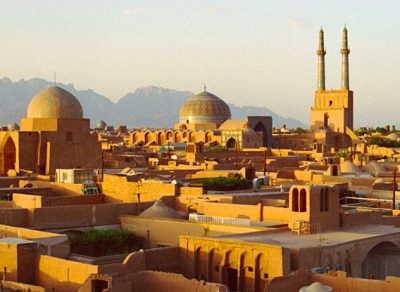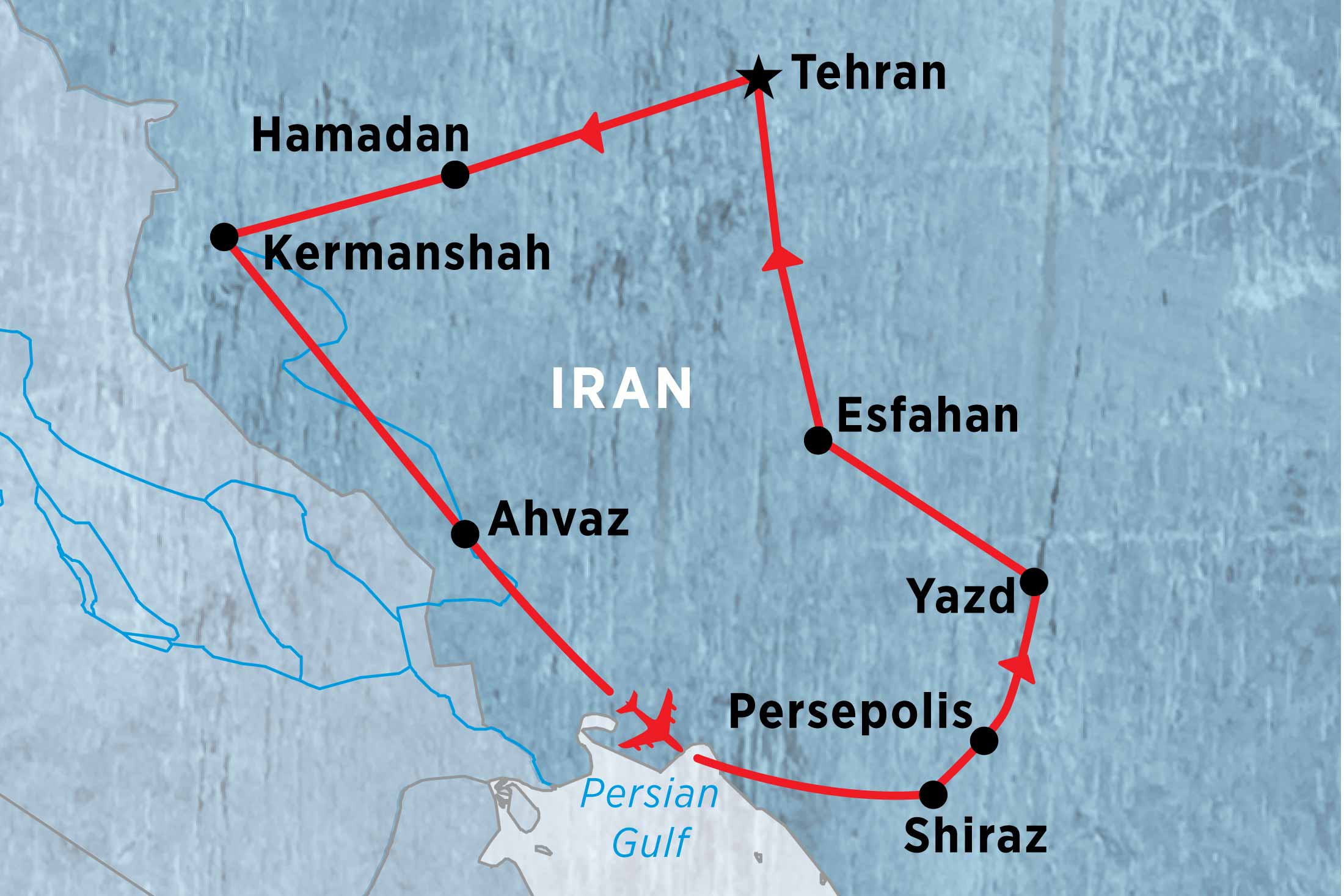| Starts | Tehran, Iran |
|---|---|
| Ends | Tehran, Iran |
| Region | Iran, Islamic Republic Of |
| Duration | 15 days |
| Tour Operator | Intrepid Travel |
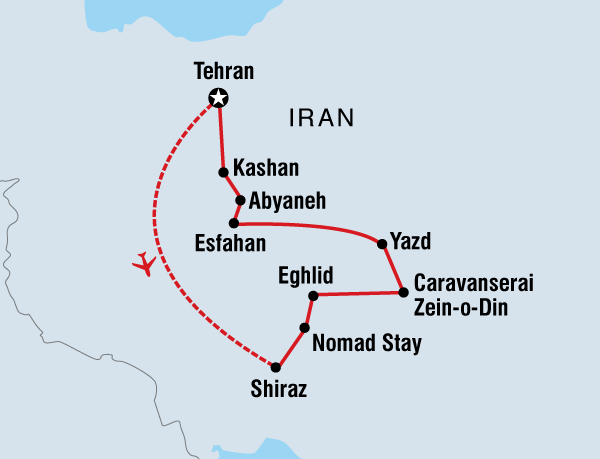
Itinerary
Day 1 - Starting: Tehran & Finishing: Tehran
Welcome to Iran. You will be met on arrival at Tehran International airport and transferred to your hotel. There will be a Welcome Meeting at 12 noon today; please refer to your hotel noticeboard or talk to reception for more details. If you can't arrange a flight that will arrive in time, you may wish to arrive a day early so you're able to attend. We'll be happy to book additional accommodation for you (subject to availability). If you're going to be late, please inform the hotel reception. We'll be collecting your insurance details and next of kin information at this meeting, so please have this on hand. Iran's capital is exciting, noisy and chaotic. Home to 15 million people, Tehran is the country's beating heart and where its true national identity is found. Expect to see women wearing full-length chadors competing for space with young and hip girls in figure-hugging manteau and headscarves. You will visit the superb Golestan Palace to view some of the excesses of the Qajar rulers, ramble through the enormous bazaar, and visit the Iman Khomeni Mosque. Later, you could try some fine Iranian cuisine like dizi (soup stew mashed into paste) while enjoying traditional music at a local restaurant. With only a short time in Tehran on this trip, perhaps arrive a few days early and spend some time visiting the sites. There's a host of interesting museums, including the National Jewellery Museum and the Carpet Museum. There are also a handful of centuries-old churches and many monuments from the city's illustrious Persian past.
Day 2 - Starting: Shiraz & Finishing: Shiraz
Catch a flight today from Tehran to Shiraz (approximately 2 hours). Shiraz is a Pearl of Persia. The very name evokes images of ancient times: exotic, tranquil gardens, lavish mansions, colourful woollen rugs, art, philosophy, poetry and of course, the famous Shiraz red wine (although unfortunately no longer found here). Shiraz is also a renowned centre of learning and boasts many of the most prestigious colleges and universities in the country. Known as Iran's cultural capital, this city was home to two of Persia's most famous poets in the 13th and 14th centuries, Hafez and Saadi, whose mausoleums are found here. Today you’ll take a walking tour around the city, stopping by Shahcheragh, a beautiful mausoleum of one of Imam Reza's brothers and the holiest site in Shiraz; the forecourt is usually packed with Shiite pilgrims. You’ll also stop by Jame Atiq mosque, one of the oldest in the county and uniquely designed, and end the tour in a traditional teahouse in the wonderful Bazar-e Vakil. In the bazaar you might spot the members of nomad groups who come to the city to stock up on provisions. In free time you could visit the incredibly colourfully decorated Nasir-ol-Molk Mosque, where sunlight streaming through stain glass windows fills the interior with kaleidoscopic colours, or the theological college of Khan Madraseh.
Day 3 - Starting: Shiraz & Finishing: Shiraz
Enjoy a free day in the ‘city of flowers and nightingales’, which has managed to retain its provincial, relaxed atmosphere and is a lovely place to explore. There are many activities to fill your day, so speak to your trip leader who can help you to plan your day. Consider visiting the lovely, vast garden complex of Eram Garden, also known as the ‘Garden of Paradise’ (Bagh-e Eram). Wander the grounds, filled with young Shirazis, where artificial rivers run through an impressive collection of cypress trees and pool in front of a colourful palace. Maybe follow this with the tombs of Hafez and Sa'di. Hafez was a Persian poet who is regarded as a literary giant and folk hero. Sa'di, another great poet and writer from Shiraz, was more of a scholar. Appreciate the intricate artwork of their tombs and understand their continued relevance and importance in Iranian society, and perhaps listen to some poetry being recited. In the centre of town is the Arg-e Karim Khan, a mud-brick citadel from the 18th century, a time when the whole of Persia was ruled by Karim Khan from Shiraz. Don't miss the room exhibiting historic photos from the 19th and 20th centuries, and the legendary tales depicted on the tiles at the entrance gate. Enjoy being stopped by friendly locals who love nothing more than to chat with you about anything and everything.
Day 4 - Starting: Nomad Stay & Finishing: Nomad Stay
Leaving Shiraz, your first stop today is Iran's premier attraction, Persepolis (approximately 1 hour). It was once the centre of the Persian Empire and one of the great cities of the ancient world, constructed in the reign of Darius I and taking 150 years to complete. The imposing gateways, exquisite relief carvings and towering columns will leave you in no doubt that this was once the centre of the known world. In 330 BC, Alexander the Great destroyed the city, and while today only the smaller ruins remain, the grandeur is still impressive. You will then visit Naqsh-e-Rostam, a cave-tomb containing the bodies of several Achaemenid kings, including Darius the Great. Then, travel on to meet your nomadic hosts. The Fars Province is famous for its nomadic people, and the barren landscape provides a stark contrast to the vibrancy and hospitality of its inhabitants. Iran has over 500 different nomadic tribes – the largest, the Qashqai, are Turkic speaking pastoral nomads who winter near the Persian Gulf and summer on the central Iranian Plateau. The area north of Shiraz has been the home of nomadic tribes for centuries. Migration is a way of life and herding cattle, sewing carpets and embroidery form the basis of these tribal economies. Join a group of local nomads and share a meal, then maybe enjoy a traditional nomad song and dance. A ‘house of hair’, made from goat and sheep fleece, is your accommodation for the night. This is your chance to observe the lifestyle of nomads as they herd their animals, tend to the fields and enjoy simple meals. Notes: Tonight’s accommodation is very simple. We share the close quarters of one large communal tent and the ground is often quite hard. For your comfort, a simple rollable foam mattress, pillows and a sleeping bag are provided, but consider bringing your own thermarest (or similar) if you’d like the extra padding. Also maybe pack thermal clothing if you feel the cold. With an adventurous attitude and Intrepid spirit, the simple nature of the camp will soon be overcome by the beauty of the landscape and this unique way of life. Also please note that due to the authenticity of this activity, it's impossible to guarantee any set program. Expect the unexpected – anything can happen, from a simple night in with local families to an invitation to a nomad wedding! Also, due to the nature of the nomadic tribes, there may be occasions when they are 'on the move' and we are not able to locate and stay with them in a normal camp. We'll do our best to make the regular arrangements, but on rare occasions there may be times when are not able to stay in a nomad camp and alternative arrangements are made. We request your patience and understanding in this situation.
Day 5 - Starting: Eghlid & Finishing: Eghlid
Farewell your nomad hosts and journey towards the town of Eghlid. Perched between the desert and the mountains, in ancient times Eghlid acted as the main gateway from the north to Persepolis, as other routes were mountainous and difficult to pass. Some of the surrounding mountain peaks are covered by snow throughout the year. Check into your hotel in this sleepy town then head out to visit Sassanid empire ruins dating back 1,800 years, a Zoroastrian ‘tower of silence’ and the sacred shrine of Eghlid. Zoroastrianism, which dates back over 4,000 years, was the state religion of Iran before the arrival of Islam. Followers believe there is one God called Ahura Mazda (Wise Lord), and they worship communally in a Fire Temple or Agiary. The intriguing Towers of Silence are part of the Zoroastrian tradition of raised circular structures where the dead are laid out to be picked clean by scavenger birds.
Day 6 - Starting: Caravanserai Zein-o-din & Finishing: Caravanserai Zein-o-din
Continue on your journey (approximately 1 hours), arriving at the historical town of Abarqu, located in the desert valley beneath the Zagros Mountains. Check out the town’s main sights, which includes an ice house (a specially constructed house that acted like a fridge), the 11th century Gonbad Ali Dome, the Khan-e Aghazadeh Qajar-era mansion, the Jameh Mosque, and a 4,000-year-old cypress tree. Then travel across the stunning Zagros Mountains and reach the Zein-o-din Caravanserai. Set in the desolate Dasht-e Lut desert, Zein-o-din is a classic small caravanserai built during the 16th century under the orders of Shah Abbas, who supposedly built 999 such hostels to promote business. The constantly mobile Silk Road travellers needed places of rest and shelter in the isolated areas between the widely spaced cities and towns, leading to the construction of many such caravanserais. Their main function was to receive travellers and store merchandise, so they were designed to be spacious enough to shelter guests, as well as goods. A night's stay in a caravanserai is a wonderful chance to step into the exotic shoes of a Silk Road merchant, and relive the age when this area hummed with travellers. Most of the rooms remain unchanged from days gone by, with carpets covering raised wooden floors, and heavy curtains rather than doors separating rooms from the hallway. Like Silk Road travellers before you, experience a rich red sunset while the night sky fills with stars.
Day 7 - Starting: Yazd & Finishing: Yazd
Get up early and enjoy an authentic breakfast of freshly baked bread. Then, enjoy free time to bask in the sunshine on the rooftop of the glorious caravanserai, overlooking the barren landscape of the surrounding desert plains. If you're lucky, you may even spot a gazelle. Travel by private van to Yazd (approximately 1 hour). This ancient desert city was a major stop on the caravan routes to Central Asia and India during the Silk Road period – Marco Polo visited the city on his way to China – and it retains a rustic feel. It's also the heart of the Zoroastrian religion. Yazd is a fascinating place to wander around, and a walking tour visits the Jameh Mosque, notable for its fine mosaics and beautiful exterior designed to draw people inside. From here you are ideally placed to explore the old part of the city, one of the oldest on earth according to UNESCO. Walk the narrow kuches (lanes), past simple courtyards and the ornate doors of the mud brick buildings. One of the most distinctive features of Yazd are the wind towers (‘badgirs’) that capture even the softest of breezes and send them to the buildings below in a forerunner of modern air-con. The water museum shows how the quants (underground water channels) brought water to the city from the mountains for thousands of years. You will also visit the Fire Temple and Towers of Silence, both vestiges of the city’s Zoroastrian heritage. In the Zoroastrian religion, fire and water are agents of ritual purity, and the fire in the Atashkadeh Fire Temple is said to have been continuously burning since 470 AD.
Day 8 - Starting: Yazd & Finishing: Yazd
Today you have the choice of taking an optional excursion outside of Yazd, which includes the impressive Kharanak mud brick village, Chak Chak fire temple, and the Meybod citadel. The impressive town of Kharanak is believed to be 1,000 years old and you can explore the abandoned structures of this hillside settlement, peering into the houses of wealthy merchants and hammans (bathhouses). Explore the valley and nearby mountains and get great pictures of the aqueducts that formed part of the underground water system. The system is still used to irrigate the fields here – great shocks of green against the brown desert. Chak Chak is one of the most important Zoroastrian pilgrimage sites in Iran, and you’ll climb up the mountainside to reach the fire temple – your efforts rewarded with wonderful views. Chak Chak means ‘drip, drip’, named for a trickle of holy water that drips inside the temple. After lunch, check out Narin Castle, thought to be the oldest mudbrick structure in Iran, and explore the still growing town of Meybod before returning to Yzad. If you're after a more relaxing day, then you can simply stay at the hotel – a traditional 19th-century traditional mansion – puff on a qalyan or try the local favourite, camel fesenjun, in the shady courtyard.
Day 9 - Starting: Esfahan & Finishing: Esfahan
Depart Yazd and embark on a local bus ride to Iran's jewel, Esfahan (approximately 5 hours). Esfahan is quite simply one of the finest places in the Islamic world, and a visit here will leave you breathless. A 16th-century rhyme called it 'half the world' and after spending a few days here, you might agree. There's an abundance of fine Islamic buildings, most of which are covered with the blue mosaic tiles Iran is famous for. There's also an enormous bazaar, which is perfect for shopping for exquisite Persian carpets. Or you can relax by the tranquil gardens, picturesque bridges and superb palaces. You’ll arrive into Esfahan in the late afternoon. This evening, you might stroll to the Zayandeh River and have a look at its historic bridges, which seem to have come straight from a fairytale. At several of the bridges local people gather to talk, drink tea and sing beautiful folk songs. This is truly a magical place to while away some time, and one of the most atmospheric places in all of Iran.
Day 10 - Starting: Esfahan & Finishing: Esfahan
You’ll have plenty of time to soak up the atmosphere of Esfahan, beginning today with a half-day tour of the city. Your guide will give you an insight into life under Persia's greatest ruler, Shah Abbas, with the city reaching its peak during his 16th century reign, when it became the capital of Persia. Even though the capital was moved to Shiraz and then Tehran, the city still retains much of its past glory. You will start the tour at the immense Imam Square (formerly Naqsh-e Jahan Square); covering an area of 82,500 square meters it’s the second largest in the world. The square is surrounded by many grand buildings, such as the Ali Qapu Palace, Sheikh Lotfollah Mosque, Qeysarieh Portal and the majestic Imam Mosque. It’s truly a remarkable sight. In the Safavid era, this square was a place for parades, military reviews, polo games and festivals; and once home to entertainers, storytellers, preachers and Silk Road caravans. Today it’s popular for local families to meander around and picnic at in the early evenings. Located in the west of Imam Square, the Ali Qapu Palace covers six floors and was originally built as the main palace of Shah Abbas, who used it to receive guests and foreign ambassadors. You’ll visit the atmospheric bazaar with its wonderful scents and spices, musical merchants' cries and, of course, thousands of locals bargaining for their most desired items. Walk the covered lanes of this sprawling marketplace, where shafts of light filter through celling and lattice, and browse for fabrics, spices, jewellery and other treasures.
Day 11 - Starting: Esfahan & Finishing: Esfahan
You have a free day to explore this lovely city, so take time to wander along the city's many tree-lined boulevards and spacious gardens. Visits to the Jameh Mosque (Friday Mosque), the biggest in all Iran and full of lovely designed stuccos, or the fresco-filled Chehel Sotun Palace, a relaxed complex with a water pool surrounded by shady tree, are highly recommended. You could also discover the bizarre Manar Jomban (shaking minarets). Perhaps head to the Armenian quarter of the city and the Church of St. Joseph of Arimathea, which has a striking interior of gilded ceilings, walls and paintings. The stunning, delicate artwork of the dome depicts the Biblical story of Genesis, from the Creation to man’s expulsion from the Garden of Eden. There is a museum in this church that contains some very historic manuscripts. Or perhaps head back into the bazaar for some more great shopping, and find one of the teahouses tucked away here, the perfect place to rest tired feet and refresh your spirit. Make sure to take a stroll by the Zayandeh River and stop for a well-deserved chai at one of the stunning bridges that give this part of the city a relaxing, but colourful air.
Day 12 - Starting: Kashan & Finishing: Kashan
Continue on by private van down the mountains, into the desert, and on to Kashan (approximately 3 hours). Kashan is a beautiful oasis city with a very long history – human settlement in the area dates back to the 4th millennium BC. It’s also a merchant town know for its high quality ceramics, silks, carpets, and some of the finest traditional houses in Iran. See these houses with visits to the Khan-e Borujerdi and Khan-e Tabatabei. These 19th-century khans were funded by wealthy merchants and feature lovely courtyards, lush gardens and fine intricate relief designs carved into stone and stucco work. Khan-e Borujerdi was built in the 1840s for the affluent Tabatabaei family because a father set one condition of marriage: that his daughter much be able to live in a home at least as lovely as his own. 18 years later, this exquisite Persian residential home, full of minute architectural details, was completed (though she did marry in the interim). Khan-e Tabatabei is known for its intricate stone reliefs, stucco and great mirror and stained-glass work. Take some time for lunch, then on to the most impressive Islamic complex in Kashan – the Agha Bozorg Mosque and Madraseh, famous for its symmetrical design. Later, if you have the energy, take some free time to explore the town's other sights such as the Fin Gardens, a classical Persian vision of paradise and one of the most beautiful gardens in the Middle East. In the evening, there's an opportunity to experience some delicious Iranian cooking in the home of a local family.
Day 13 - Starting: Tehran & Finishing: Tehran
This morning, make your way from Kashan to Tehran (approximately 4 hours). Stop along the way to visit the still under construction holy shrine of Imam Khomeni, the leader of the Islamic Revolution. When completed, the Iranian’s believe the shrine will be one of the greatest buildings in the Islamic world. Revered as the father of the 1979 revolution, Imam Khomeni was buried here in 1989. His funeral was attended by an incredible 10 million people, making it the world's biggest. People from all around Iran come here to pay their respects. You’ll also visit the nearby Behesht-e Zahra, an enormous cemetery where many who lost their lives during the Iran-Iraq War are buried. With over 200,000 graves, it serves as a moving reminder of the futility of war. Arrive at your Tehran hotel this afternoon. Tonight you can relive your unforgettable adventure over an optional farewell dinner at a local restaurant.
Day 14 - Starting: Tehran & Finishing: Tehran
There are no activities planned for the final day and you are able to depart the accommodation at any time.
View Dates

